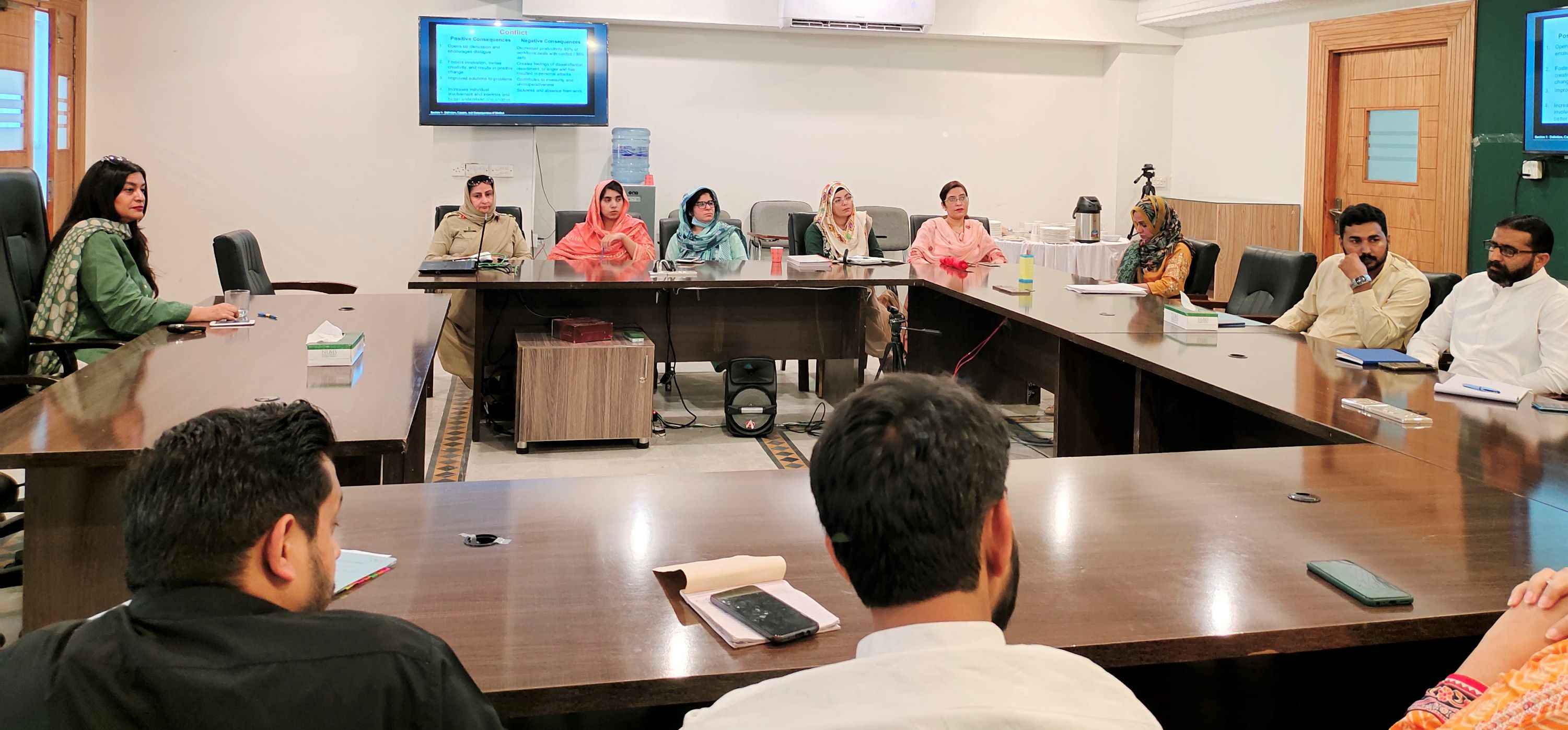
We all face troublesome situations and conflicting circumstances in our everyday lives, but the way we deal with them makes all the difference. According to Max Lucado, conflict is inevitable but combat is optional. Conflict – be it internal or external – is an unavoidable element of life and organizations. Whenever two or more individuals get together, conflict may happen, sooner or later, due to differences of opinion. Yet, hostility or violence is always optional in all of life’s situations. Modern organizations know that offering handsome salaries and promising state-of-the-art office facilities do not guarantee a dedicated and high-performing workforce. Conflict in organizational setup is a state of discord arising between individuals, groups, departments, or organizations because of contradictory thoughts, feelings, and values. Eventually, it results into a range of adverse consequences including negative impact on performance, time, and cost. Conflict management refers to enduring behavioral patterns a person exhibits while managing a conflict. NUMS Center for Lifelong Learning (NCL) identified the dire need to educate its workforce on the importance of conflict management at workplace. NCL organized a workshop on the aforementioned topic on 16th September 2022 facilitated by Prof. Dr. Shazia Khalid (HoD, NUMS Department of Psychology). The workshop was a high success and zealously attended by AM College representatives, university faculty members, and administrative staff at the NUMS PWD Campus. The scholarly resource person brought to light and debated on the following common sources of conflict at a workplace:
a. Structural Conflict
b. Interests Conflict
c. Data Conflict
d. Relationships
e. External
f. Moods
g. Values; Ethical, Cultural etc.
She italicized the repercussions of the above mentioned reasons for conflict one by one while keeping the session interactive. Prof. Dr. Shazia clarified that faking nerves of steel or shying away from a sticky situation are both ineffective modus operandi for dealing with conflict. A workplace conflict, in particular, is that elephant in the room which must be addressed in a logical manner to avoid declining mental health and organizational performance. Workplace conflict also leads to a handful of positive consequences such as opening up discussions, encouraging dialogue and fostering innovation, inviting creativity, improving solutions to problems, and increasing individual involvement. In order to ensure peace at workplace individuals must examine their behaviors in the light of how they affect others, practice forgiveness, turn emotional empathy into bonding, and inculcate the habit of active listening. The cultured facilitator sprinkled the workshop with toothsome interactions with her diverse audience, so as to enhance their learning experience. She stressed the significance of performing self-analysis every now and then, instead of bottling up unresolved and self-damaging emotions. Prof. Dr. Shazia Khalid was patience personified which demonstrated the exact behavior she intended to teach. The event concluded with thoughtful closing remarks and distribution of certificates by the Chief Guest, Director Administration (PWD Campus, NUMS) Brig Shahid Sultan Khan, SI (M), (Retd).
This workshop by NCL/RD Dte was undertaken in relation to SDG 3 (Good Health and Wellbeing), SDG 4 (Quality Education), SDG 8 (Decent Work and Economic Growth), and SDG 16 (Peace, Justice and Strong Institutions).
.jpg)
.jpg)
.jpg)
.jpg)
.jpg)